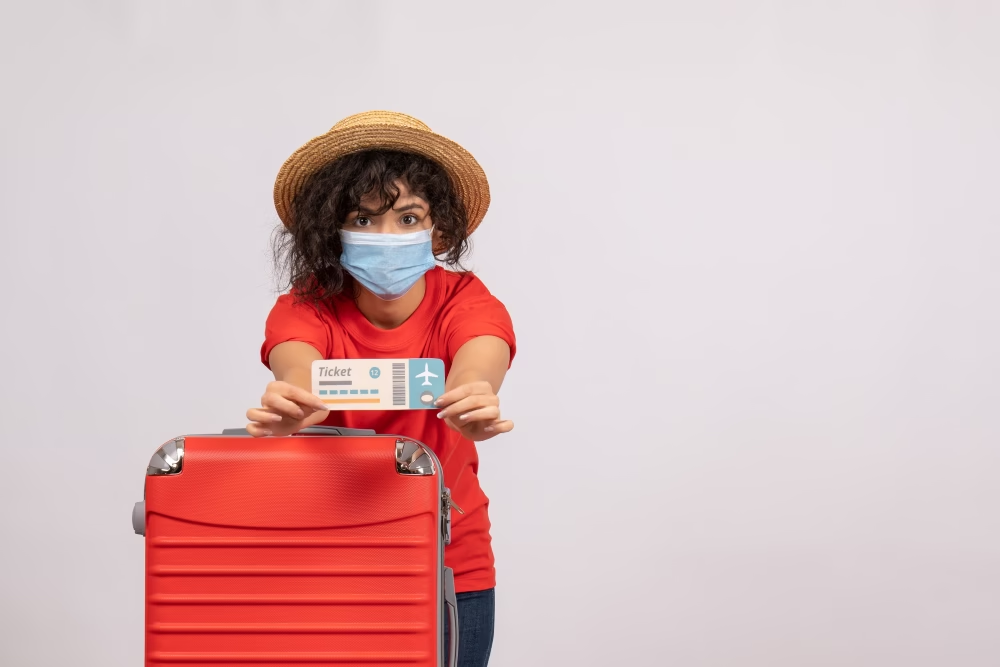When Nigerians think about travelling abroad, we often focus on flight tickets, visa requirements, and how to “show proof of funds.” But one important aspect many people ignore is travel insurance. The truth is, most Nigerian travellers don’t see it as necessary—until something unexpected happens. From cancelled flights to medical emergencies abroad, travel insurance can save you from huge losses and unnecessary stress. In this guide, we’ll break down what travel insurance means, what it covers, and whether it’s something you really need as a Nigerian planning to go abroad.
What Is Travel Insurance?
Travel insurance is a type of protection that covers you financially when things go wrong during your trip. It helps you recover money if you fall sick abroad, lose your luggage, miss your flight, or get into unexpected trouble in a foreign country. Think of it as your backup plan when life doesn’t go as planned while you’re far from home.
Unlike car or health insurance, which you’re required to pay monthly or annually, travel insurance is often paid once—for the duration of your trip. Depending on the provider, you can buy travel insurance for just a few days, a month, or even a full year if you’re a frequent traveller.
What Does Travel Insurance Usually Cover?
Every travel insurance plan is different, but most of them cover similar areas. One of the most important is medical emergencies. If you fall sick or have an accident abroad, hospital bills can run into thousands of dollars. For example, in the US, a simple emergency room visit can cost over $1,500. Without travel insurance, you’ll have to pay out of pocket—and that could wipe out your entire savings.
Travel insurance also covers things like flight cancellations or delays. If your airline cancels a flight or your connection is missed, the insurance can help you recover the money you spent on hotels or reschedule another flight without paying double.
Lost or stolen baggage is another issue many Nigerians face, especially on connecting flights in Europe or the Middle East. Travel insurance can reimburse you for essential items like clothes and toiletries if your bag doesn’t arrive on time.
Some plans also offer personal liability coverage. That means if you accidentally damage property abroad or get into legal trouble, your insurance may help cover the legal fees or compensation involved.
Why Most Nigerians Ignore Travel Insurance
One major reason many Nigerians skip travel insurance is because of cost. We already spend a lot on visas, flight tickets, and accommodation. Travel insurance feels like an extra bill—especially when nothing goes wrong.
Another reason is lack of awareness. Many people don’t even know it’s an option or they assume it’s something only “rich people” or “first-timers” need. Some people believe that if you’re travelling to stay with family abroad, there’s no need to spend money on insurance.
But this mindset can be risky. Emergencies don’t give warnings, and even the most experienced travellers can get stuck. Imagine missing your return flight due to a sudden illness, or losing your bag with your passport and documents inside. That’s when travel insurance becomes more valuable than gold.
Is Travel Insurance Required for Visa Applications?
In many cases, yes. For example, if you’re applying for a Schengen visa to countries like Germany, France, or Spain, travel insurance is a mandatory requirement. The embassy will even specify the kind of coverage you must have, including a minimum medical limit of €30,000.
Some other countries, like Canada or the US, don’t necessarily ask for travel insurance during the application, but it is highly recommended. In fact, many Canadian schools advise international students to have insurance in case of emergencies.
If you’re applying for a student visa, many schools and embassies prefer that you show proof of a health or travel insurance plan, especially if your program lasts more than six months.
So whether it’s compulsory or not, it’s wise to factor travel insurance into your travel budget.
How Much Does Travel Insurance Cost in Nigeria?
Travel insurance is surprisingly affordable. For a two-week trip to the UK, you can get basic insurance for as low as ₦15,000 to ₦25,000, depending on the provider. Comprehensive plans with more coverage might cost ₦40,000 or more.
Annual multi-trip insurance for business travellers or students who travel regularly can range from ₦80,000 to ₦200,000 depending on the country, age, and medical history.
When compared to how much you’ll lose in a real emergency, this cost is nothing. Paying ₦20,000 upfront is better than losing ₦2 million on foreign hospital bills.
Trusted Travel Insurance Providers in Nigeria
If you’re wondering where to get legit travel insurance in Nigeria, there are several companies to choose from. Some of the popular ones include:
Leadway Assurance, AXA Mansard, AIICO Insurance, Mutual Benefits Assurance, and Allianz Nigeria. You can also get travel insurance through international partners like World Nomads or SafetyWing, though you may need a debit card that works internationally.
Some visa application centres even offer travel insurance as part of their services. But before you pay for any plan, make sure it meets the visa requirements and provides the kind of coverage you actually need.
What to Look for When Choosing a Travel Insurance Plan
Not all travel insurance plans are the same, so don’t just go for the cheapest one. First, look at the medical coverage limit. Make sure it covers at least $30,000 or more, especially if you’re travelling to countries with expensive healthcare systems like the US or UK.
Next, check if the plan includes baggage loss, trip cancellation, personal accident, and emergency evacuation. Some policies also cover COVID-related issues, like testing costs or quarantine expenses.
Also confirm if the plan has 24/7 global support, so you can reach someone even if you’re stranded abroad in the middle of the night. Finally, make sure they provide proper documentation to attach to your visa application, if needed.
When Travel Insurance Makes the Most Sense
If you’re travelling for business, school, tourism, or even medical treatment, travel insurance gives you peace of mind. It makes the most sense when your trip involves multiple stops, long flights, or stays in countries where you’re unfamiliar with their health or legal system.
For students, insurance is essential, as many universities abroad require it. For families travelling with children, it’s also smart to have it in case of illness or unexpected issues. Even if you’re just going to Dubai for a 5-day vacation, anything can happen—insurance keeps you safe.
Final Thoughts
In Nigeria, travel insurance may not be popular yet, but that doesn’t make it less important. Emergencies abroad can cost you time, money, and your peace of mind. Getting travel insurance doesn’t mean you’re expecting problems—it simply means you’re prepared for anything.
As a Nigerian planning to go abroad, whether for study, tourism, or business, it’s better to be safe than sorry. Don’t wait until your bag is missing or you’re stuck in a hospital abroad with no help. Include travel insurance in your travel plans today, and protect your journey before it even begins.
Stay with Krain Naija News for reliable travel tips, visa updates, scholarship opportunities, and job alerts that help Nigerians make informed and smart decisions abroad. We’re here to guide you with the facts that matter—every step of the way.


